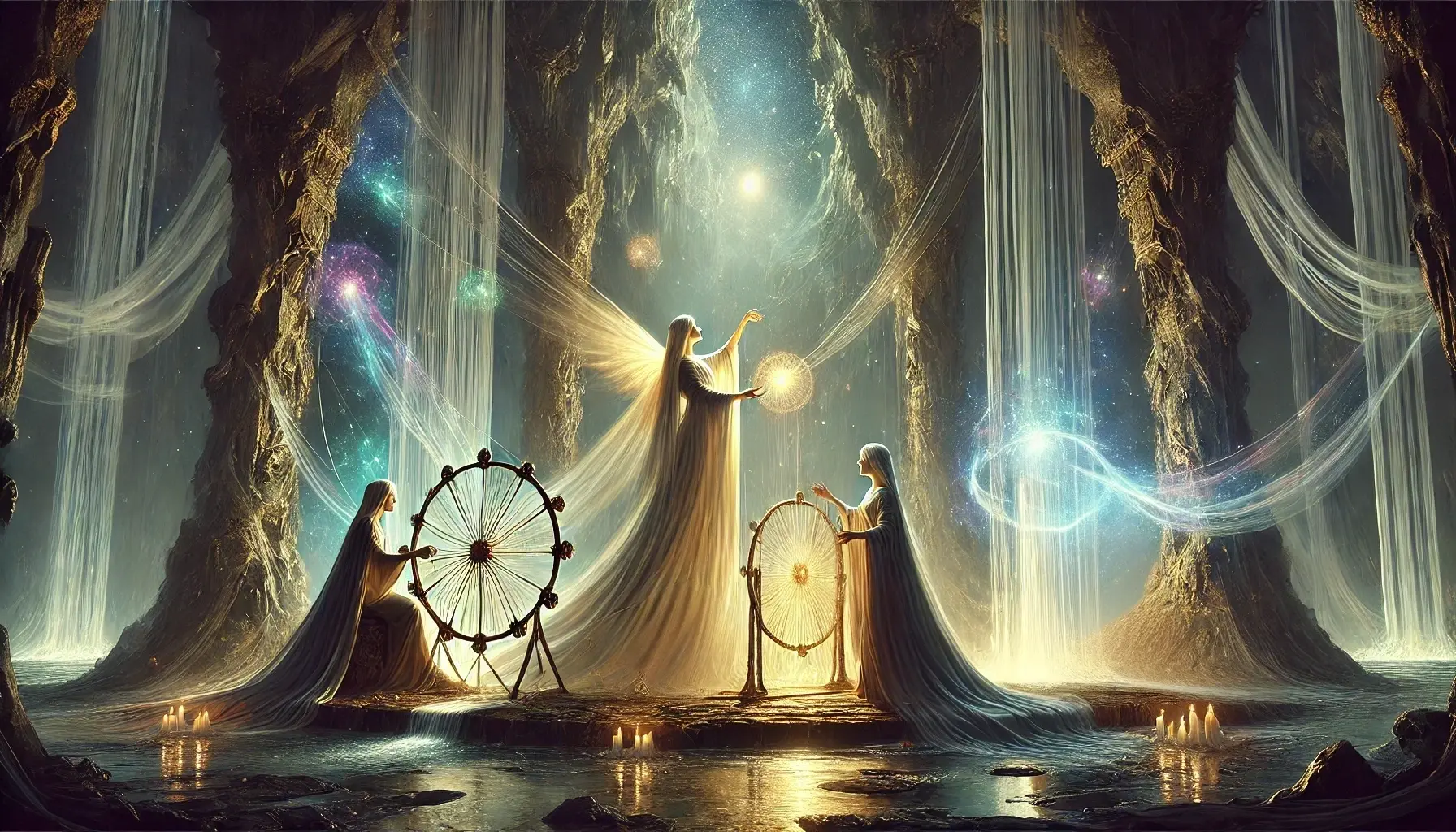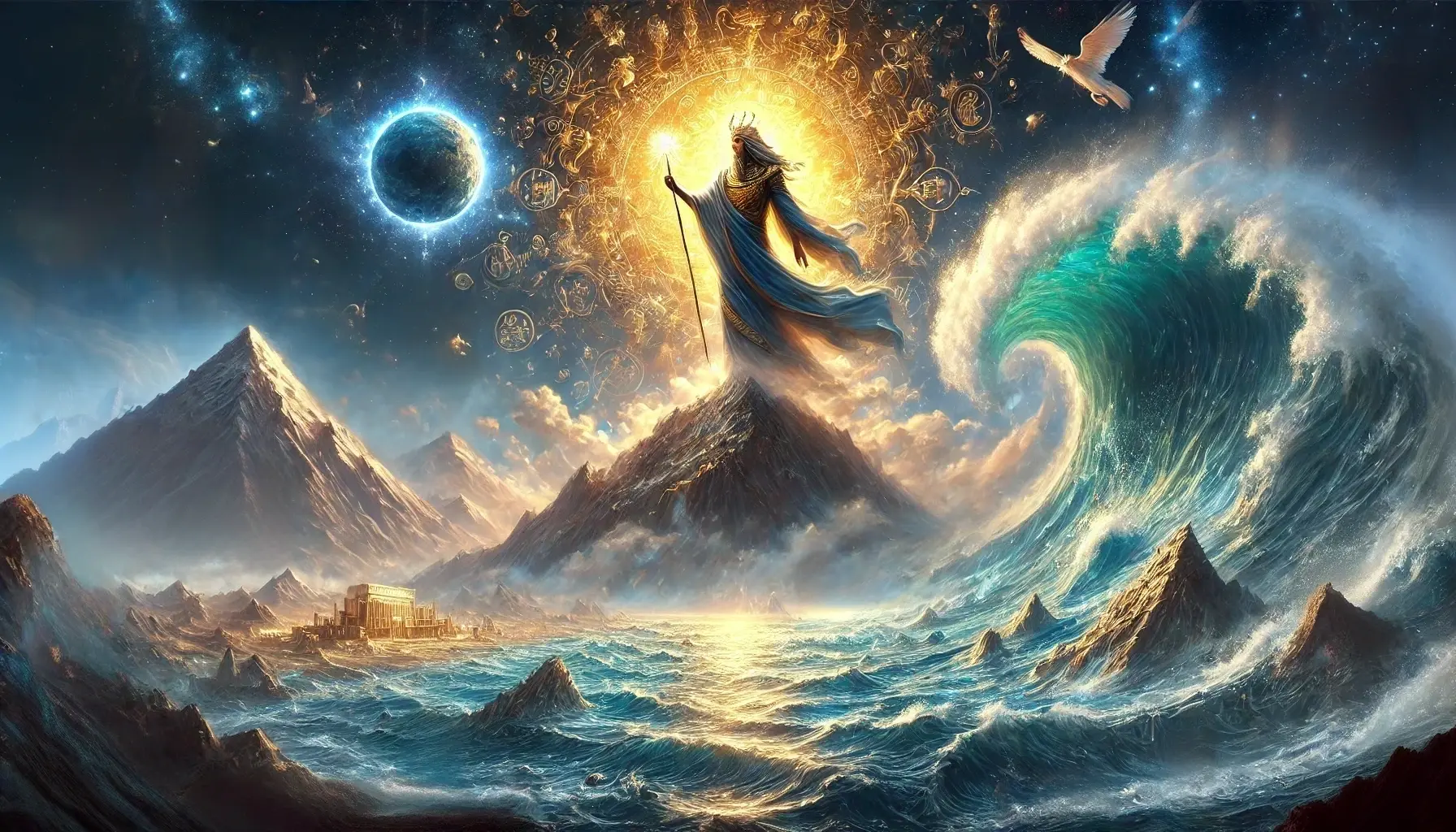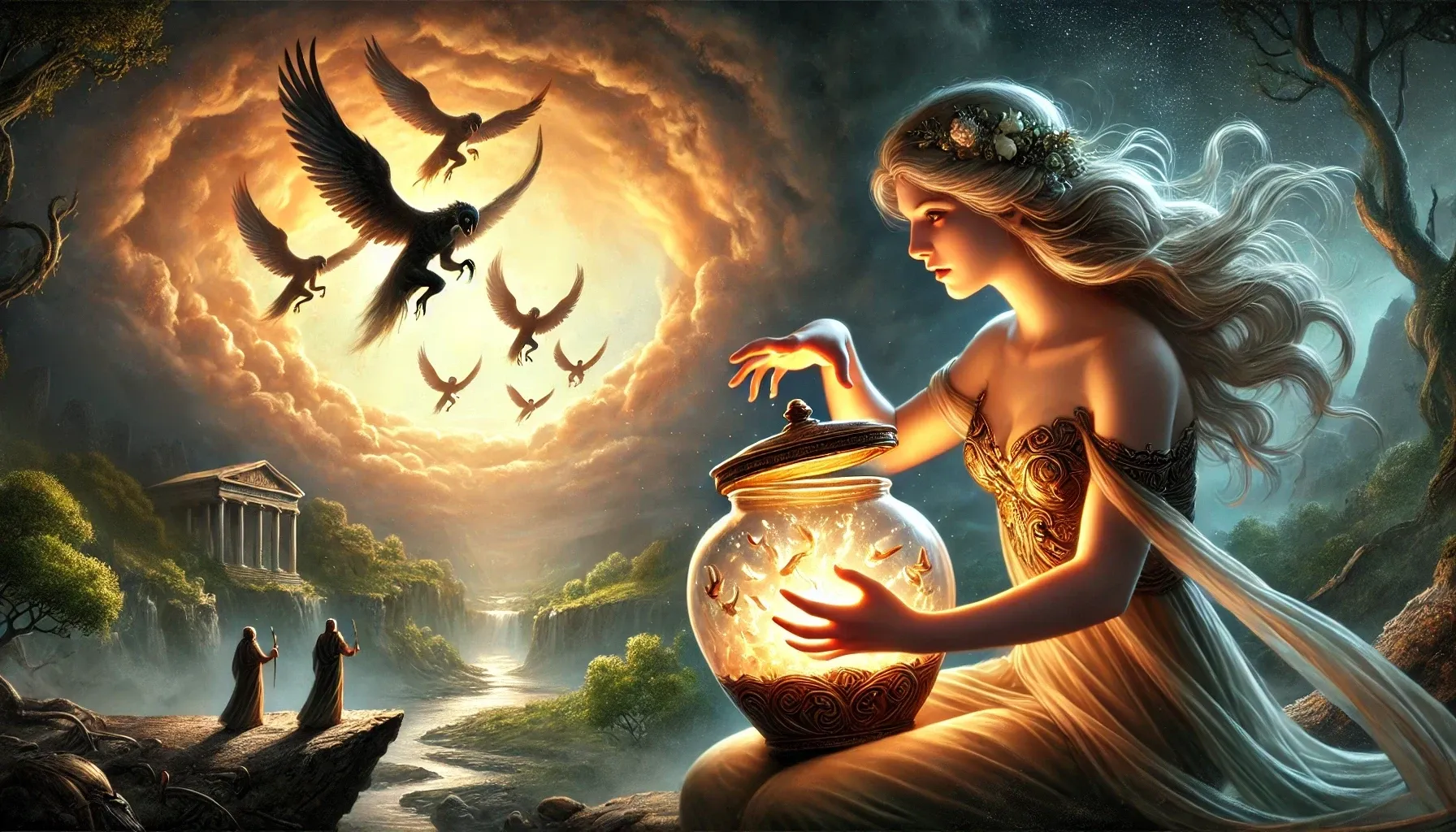The Birth of Chaos and Order
In the mist-shrouded dawn of time, when the earth was young and the heavens raw, the Titans ruled supreme, children of Gaia and Uranus, the primordial forces of Earth and Sky. Twelve they were, colossi of unmatched might and splendor, their forms hewn from the elements themselves. Cronus, the youngest, bore a scythe of cold iron, sharp as betrayal, and harbored ambitions that outgrew his father’s shadow.
The Titans governed with heavy hands, crafting mountains and rivers, shaping valleys and seas, but their reign bore neither peace nor harmony. Their father, Uranus, fearful of their burgeoning power, cast his children into the dark abyss of Tartarus. Gaia, grief-stricken and enraged, whispered rebellion into the ears of Cronus, who struck Uranus down and seized the heavens. Yet, in his victory, Cronus inherited his father’s paranoia, swallowing each of his offspring to avert prophecy’s curse: a son destined to overthrow him.
The Ascent of Zeus
Rhea, Cronus’ consort, grieved for her devoured children and resolved to outwit the tyrant. Upon birthing Zeus, she swaddled a stone and presented it to Cronus, who devoured it with unthinking haste. The infant Zeus, spirited away to the crests of Mount Ida, grew nurtured by the milk of Amalthea, the divine goat, and the sweet nectar of ambrosia.
In time, Zeus came of age, his eyes alight with defiance. Guided by Metis, the goddess of cunning, he devised a draught of bitter herbs that forced Cronus to disgorge his progeny: Hestia, Demeter, Hera, Hades, and Poseidon. Together, the six Olympians swore an unbreakable bond to challenge the old order.
The War of the Titans
The battle began as an ominous rumble, a tremor that shook the foundations of the cosmos. On one side stood the Titans, towering and primal, their strength born of the earth’s very bones. On the other, the Olympians, smaller in stature but brimming with youthful vigor and divine ingenuity.
The war, known as the Titanomachy, raged for ten years. The skies burned with celestial fire, and the seas churned with the wrath of Poseidon. Hades cloaked the battlefield in shadows, sowing fear among the Titan ranks, while Zeus hurled his thunderbolts, each strike carving canyons and lighting the heavens in blinding flashes.
The stalemate broke only when Zeus descended to Tartarus, liberating the Hecatoncheires and the Cyclopes, ancient and monstrous beings imprisoned by Cronus. In gratitude, the Cyclopes forged weapons of unimaginable power: Zeus’s thunderbolts, Poseidon’s trident, and Hades’ helm of darkness. Armed thus, the Olympians surged forward, overwhelming the Titans and driving them back to the edge of defeat.
The Fall of the Titans
With one final, cataclysmic assault, Zeus unleashed a storm of thunderbolts, their fury splitting the sky and the earth. The Titans, their forms scorched and broken, fell like mighty oaks felled by an unrelenting tempest. Bound in unyielding chains, they were cast into Tartarus, their anguished roars echoing through the chasms of the underworld.
Atlas, mightiest of the Titans, was sentenced to bear the weight of the heavens upon his shoulders, a punishment as eternal as the stars themselves. The Olympians, triumphant, claimed dominion over the world, their rule heralded as an era of order and divine law.
Prometheus and the Flicker of Defiance
Yet not all Titans met their doom in Tartarus. Prometheus, the forethinker, foresaw the shifting tides of power and aligned himself with Zeus. It was he who shaped humanity from the clay of the earth and gifted them fire, a sacred spark stolen from the gods. This act of rebellion, though subtle, sowed the seeds of dissent in the newly established order.
For his transgression, Zeus condemned Prometheus to a torment as unending as the heavens. Bound to a rock, his liver was devoured daily by a great eagle, only to regenerate with each dawn. Yet Prometheus endured, his suffering a silent testament to the enduring spirit of defiance against tyranny.
The Triumph and the Burden
With the Titans vanquished, Zeus ascended to his throne atop Mount Olympus, crowned by thunderclouds and flanked by his loyal siblings. The heavens, once a battlefield, now shimmered with constellations, eternal reminders of the war that had forged the new gods’ dominion. Yet the scars of the conflict lingered, etched into the earth and sky, a solemn testament to the price of order.
The Olympians governed with a newfound understanding of power’s fragility. Though they ruled supreme, the whispers of prophecy and rebellion lingered, a shadow that would follow them through the ages. Zeus, ever watchful, kept his lightning close, his gaze fixed on the horizon, where the next challenge might rise.
A Vision of Eternal Struggle
As the ages unfolded, the echoes of the Titanomachy resonated in the hearts of mortals and immortals alike. On a quiet night, under a canopy of stars, a shepherd tending his flock might glance at the heavens and see in the constellations the silhouettes of Titans and gods locked in eternal struggle. The stars, though distant, seemed to pulse with the memory of celestial battles, their light a flicker of the fire Prometheus had given to mankind.
The Unyielding Weight of Atlas
Far to the west, where the horizon kissed the sea, Atlas stood unmoving, the heavens balanced on his broad shoulders. His punishment was a living reminder of the Titans’ defeat and the weight of rebellion. Yet, as the sun dipped below the horizon and the stars emerged, there was a moment—a fleeting instant—where the burden seemed lighter, the heavens a little less oppressive. In that moment, a mortal observer might wonder: did Atlas’s lips curl into the faintest hint of a smile? Did he, in his torment, find solace in the knowledge that struggle, no matter how eternal, was its own kind of triumph?
The sea winds howled, and the stars shone on, indifferent yet luminous, as if to say: the clash of Titans and gods was not a battle of destruction, but a forging—a cycle of chaos and order, creation and ruin, etched forever into the fabric of existence. The heavens’ weight pressed down, but Atlas stood firm, a silent sentinel of defiance and endurance, his silhouette stark against the cosmos’ infinite canvas.



